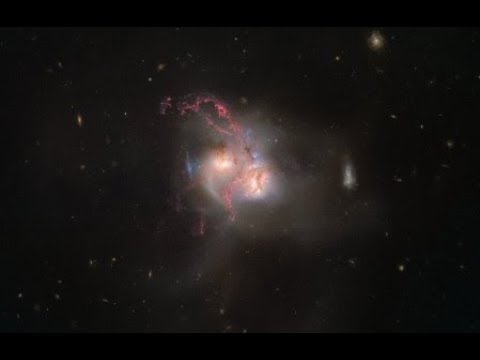Scientists Uncover Mysteries of Black Holes Through Astronomical Observations
Black holes have long been one of the most enigmatic and fascinating phenomena in the universe. These mysterious objects, with their immense gravitational pull from which not even light can escape, have puzzled scientists for decades. However, recent advancements in astronomical observations have allowed researchers to uncover some of the mysteries surrounding black holes.
One of the key breakthroughs in black hole research has been the use of telescopes that can observe the universe in different wavelengths of light, such as X-rays and radio waves. These observations have provided scientists with valuable insights into the behavior and characteristics of black holes.
For example, in 2019, the Event Horizon Telescope collaboration made history by capturing the first-ever image of a black hole. The image, which showed the shadow of the supermassive black hole at the center of the galaxy M87, provided scientists with valuable information about the structure and dynamics of black holes.
In addition to imaging black holes, astronomers have also been able to study the effects of black holes on their surrounding environments. By observing the movements of stars and gas clouds near black holes, researchers have been able to measure the mass and spin of these mysterious objects.
One of the most exciting recent discoveries in black hole research is the detection of gravitational waves. In 2015, the Laser Interferometer Gravitational-Wave Observatory (LIGO) made history by detecting the ripples in spacetime caused by the merger of two black holes. This groundbreaking observation not only confirmed the existence of black holes but also provided scientists with a new tool for studying these objects.
By combining data from different astronomical observations, scientists have been able to paint a clearer picture of black holes and their role in the universe. These observations have confirmed many long-standing theories about black holes, while also raising new questions and challenges for researchers.
As technology continues to advance, astronomers are hopeful that they will be able to uncover even more mysteries of black holes in the coming years. From studying the behavior of black holes in different environments to investigating the possibility of black holes merging with other objects, there is still much to learn about these enigmatic cosmic entities.
In conclusion, astronomical observations have played a crucial role in advancing our understanding of black holes. By capturing images, measuring gravitational waves, and studying the effects of black holes on their surroundings, scientists have made significant progress in unraveling the mysteries of these fascinating objects. As technology continues to improve, we can expect even more exciting discoveries in the field of black hole research.












